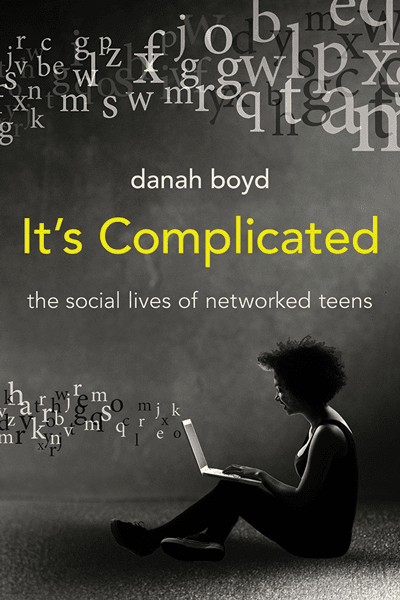Good morning,
I wanted to let you know the 8th graders are traveling well. I received an update from John Schoults and all is well.
Dave
Tuesday, May 27, 2014
Friday, May 16, 2014
6th Grade and The Adult Center for Enrichment Art Exchange
Through a combination of Mrs. Stouten's 6th Grade Art class and Anne-Barton Carter's Servant Leadership curriculum, 6th graders have been engaging in an art exchange over the course of the last few weeks. Check out the work above in a collage completed on getLoupe.com.
Wednesday, May 14, 2014
The Powerful Effect of Unstructured Play
I found this article on Twitter and it is a great reminder that unstructured play is essential for healthy development.
- Let them struggle with the rules,
- let them argue "fairness,"
- let them build forts and skin knees,
- let them dam streams, and
- let them relax.
Monday, May 5, 2014
It's Complicated: A Book Review
This book review was originally posted on the SAIS website on 5/1/2014.
Teens & Social Media: It’s Complicated
A review of danah boyd’s new book, It’s Complicated: The Social Lives of Networked Teens
By David Skeen
Once upon a time in a land far, far away young people lived idyllic lives. Teenagers, as they were called, always - always - obeyed their parents. They would sit enthralled at the knees of their mothers and fathers, soaking up the hard-earned wisdom of these adults. Teens would tell their parents everything that was happening in their lives from the moment they woke up to the time they went to bed - at a reasonable hour, of course. Teens knew they needed their sleep and got plenty of it. Teen years were happy, simple and easy.
One day an evil sorcerer named Internet arrived in the kingdom. Internet and his minions, MySpace, Facebook, Snapchat, Instagram, YouTube, and Twitter (collectively known as “Social Media”) enticed and lured teenagers to share their lives and ideas. As Internet’s insidious relationship with the youth of the kingdom took hold, teenagers grew moody, often shunning time with their parents so they could “hang out” with their friends. Parents knew very little about what was happening in their lives and were worried their children were not getting enough sleep. Most concerning of all, teens were pushing boundaries with their parents and searching for - gasp - their own identities.
In her new book, It’s Complicated: The Social Lives of Networked Teens, danah boyd (she does not capitalize her name) debunks the above fairy tale and brings us back to reality regarding “the anxieties that many American adults have about teens’ engagement with social media” (p. 5). Through ten years of study, 166 interviews with teens around the country, work at Berkeley, Harvard, and NYU (the twenty-one page bibliography is a testament to the depth of research), as well as her day job as Principal Researcher at Microsoft Research, danah boyd has written a book that is an essential read for educators and parents.
boyd’s premise begins with the idea that teen issues today are the same as they have always been. Despite what she finds as a common desire by teens to hang out in person a combination of society’s fear and anxiety around our children, reduction in access to interpersonal settings such as the mall or the park and overscheduling force teens to flock to social media to do what teens do: socialize. These new “networked publics,” as boyd calls them, provide teenagers with what they’ve always wanted - opportunities to connect “with other people and have the freedom of mobility.” (p. 10)
The internet is neither good nor bad and social media is neither good nor bad. Both, however, are here to stay. Social media will not, as boyd outlines, usher in a utopia or destroy society but instead will act as a “reflection of our society and that mirror is going to be reflecting what we see. If we do not like what we see in that mirror the problem is not to fix the mirror, we have to fix society” (p. 212). With this tenet in mind, boyd delves into seven topics related to teens and their networked world: identity, privacy, addiction, danger, bullying, inequality and literacy. Throughout each chapter, boyd maintains a narrative that is grounded in sociology rather than technology. Her findings are revealing. Some of the most intriguing include,
- Teens today are “public by default and private through effort.” (p. 61)
- Teens aren’t necessarily addicted to social media, but rather, as has long been the case, addicted to each other. (p. 80)
- With the introduction of social media, like Elvis, comic books, and TV before it, parental anxieties are regenerated and the medium of the cultural shift becomes the target of a “moral panic.” (p. 105)
- Teen friending patterns on social media consistently reinforced existing social divisions. (p. 165)
- Digital Native vs. Digital Immigrant is a false precept. It abdicates our responsibility to teach our kids digital and media literacy. (p.180)
boyd’s voice of reason and research driven narrative provides a straightforward framework for conversations with teenagers. It’s Complicated should be required reading for all educators and parents in order to better understand this new(ish) platform of social media and its impact on our world. The good news is, as boyd herself states, while the names of Internet’s minions may change, the underlying story remains the same. Lessons learned from this book are enduring.
For most independent school educators, this work probably confirms a lot of what we have intuited about teen life and, therefore, offers a bridge for conversation with anxious parents. For parents, the book provides a calming voice. One who has an intimate knowledge of teenagers is saying quite clearly, “Our children’s world may be more complicated than we ever imagined but, by and large, they are going to be OK.”
Subscribe to:
Posts (Atom)


